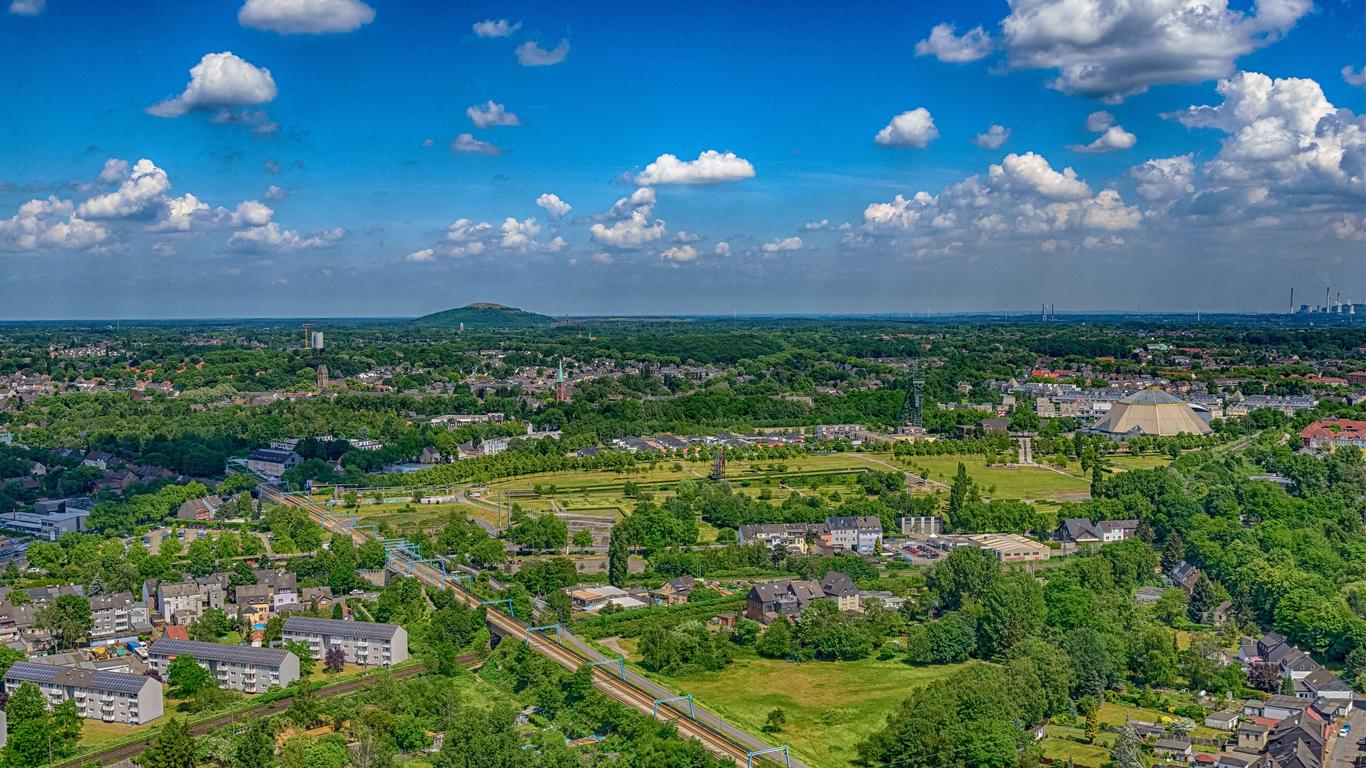Founded in the 1860s following the establishment of coal mines and steel mills, Oberhausen was once one of the largest industrial hubs in the world. It lies on the banks of the River Emscher in the Ruhr area of North Rhine-Westphalia, with many of its former factories and industrial sites transformed into cultural attractions.
Things to do in Oberhausen (Nordrhein-Westfalen)
Oberhausen’s most famous attraction is the Gasometer, a 1929-built gas storage facility that serves as an exhibition space. Rising to 120 metres in height, it was decommissioned in 1988 and now forms part of the European Route of Industrial Heritage. Ride the elevator that leads to the Gasometer’s roof for sweeping views across the Ruhr area.
Occupying a former zinc factory is the LVR Industrial Museum, which details how the area became a major industrial centre. Its exhibits showcase life for those who worked at Oberhausen’s iron and steelworks, with a highlight being the museum’s 53-ton steam hammer. The LVR Industrial Museum runs five other facilities throughout Rhineland, including former textile factories and a paper mill.
On the south bank of the Rhein-Herne Canal is the Kaisergarten, a 19th-century green space with children’s playgrounds and a miniature golf course. You can stretch your legs on the trails that wind through the woodlands and meadows or get up close to domesticated and wild animals at the petting zoo. Adjacent to the Kaisergarten is Oberhausen Castle, home to the impressive Ludwig Collection of art.
Getting around Oberhausen (Nordrhein-Westfalen)
Oberhausen is around 15 minutes’ drive from Duisburg and 30 minutes from the centre of Düsseldorf. Düsseldorf International Airport is 25 minutes away and has flights to destinations across Europe, North Africa and the Middle East. Regular trains connect to the Oberhausen railway station while both trams and buses travel throughout the city.






